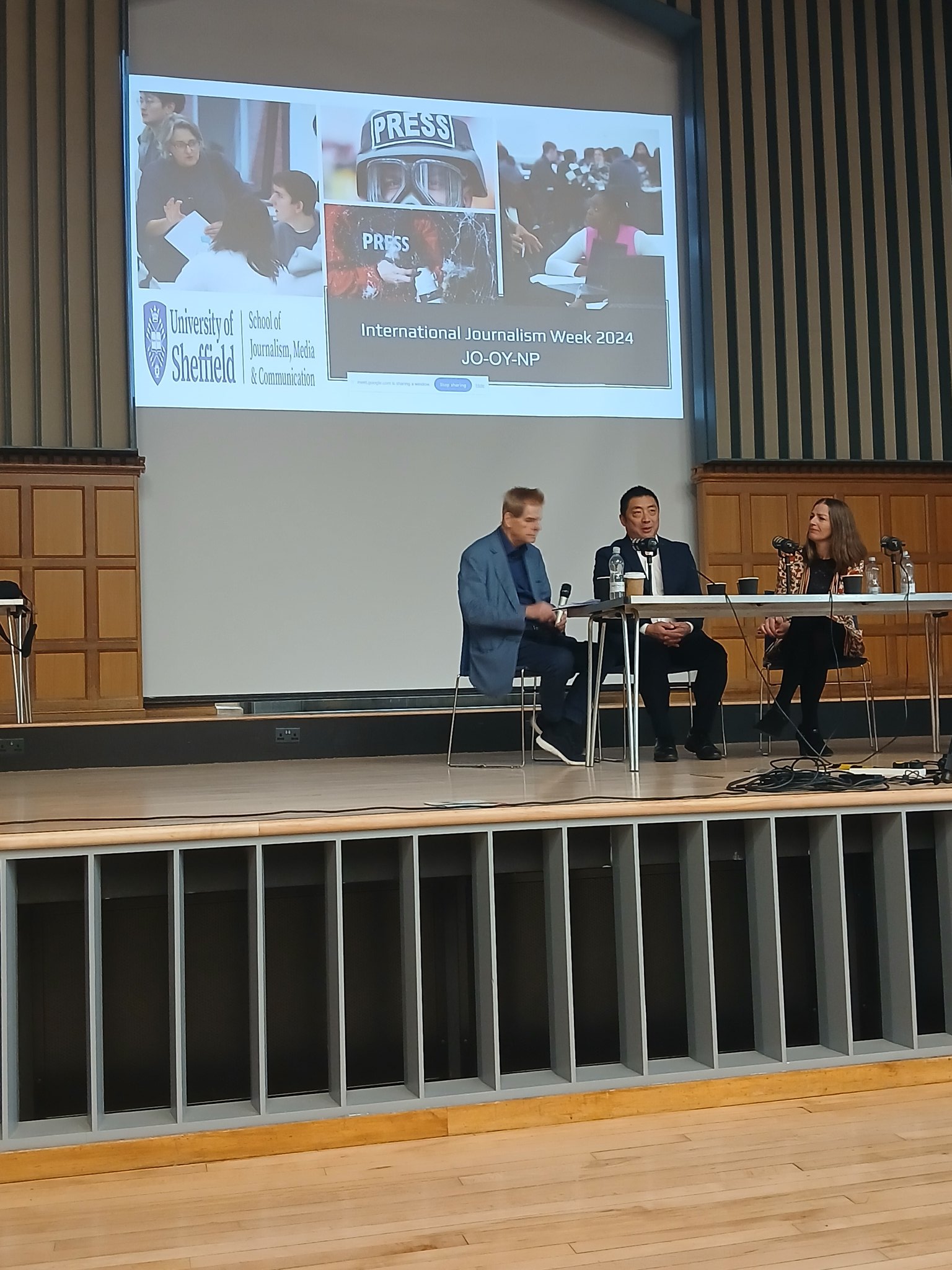International Journalism Week 2024

International Journalism Week took place from 4-7 November and this year’s focus was on Journalism in the times of global unrest. CFOM hosted a panel event to commemorate International Day to End Impunity for Crimes against Journalists (IDEI) which focused on three perspectives on journalism in a time of unrest. The panel was moderated by CFOM’s International Director, William Horsley, and was opened by CFOM Chair and UNESCO Chair on Media Freedom, Journalism Safety and the Issue of Impunity, Professor Jackie Harrison.
In her opening remarks, Professor Harrison discussed the current threats that journalism is facing across the world with regards to the rise of populism and journalists suffering from attacks, both physical and non-physical, and the issue of impunity. She also spoke about the importance of protecting journalism at a time when journalists are finding themselves challenged in their reporting by a number of factors including governments and the rise of disinformation, noting how it is difficult for journalists to truly be independent if external factors are impacting their reporting. She also spoke about how much confidence we have in our political and civil institutions to withstand these forces of contestation.
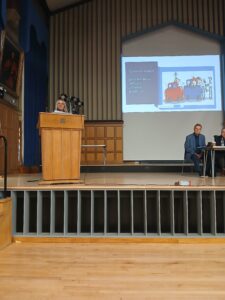
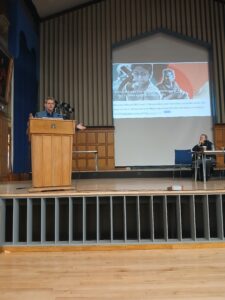
CFOM’s International Director, William Horsley, then proceeded to open the CFOM panel by discussing International Day to End Impunity for Crimes against Journalists which takes place annually on 2 November. He spoke about the rising level of impunity for crimes against journalists that we are seeing on a global scale, particularly so as only 14% of cases of crimes against journalists are judicially resolved. In 2023, UNESCO recorded more than 50% of journalist killings occurred in crisis and conflict zones. As part of the CFOM panel, three speakers took part to discuss a range of topics focused on journalism in times of global unrest: Professor Chris Paterson (University of Leeds); Fiona O’Brien (London Bureau Director at Reporters Without Borders) and Howard Zhang (Former Head of BBC News Chinese).
Professor Chris Paterson spoke about the weakening of the global legal order to protect journalists in the age of unrest. In his presentation, he noted that journalists were at risk across the world as we enter a period of unrest, citing concerns following the US election and what a new administration might mean for journalists. He also spoke about journalists who report from war and conflict zones and the dangerous reality of being a journalist there as 625 journalists have lost their lives between 1992 and 2024. He also highlighted the level of impunity as many crimes committed against journalists go unpunished. He noted the legal protections for journalists, but highlighted how, despite these, journalists are still threatened by a range of both state and non-state actors for doing their job.
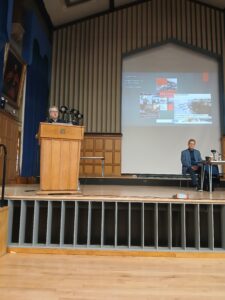
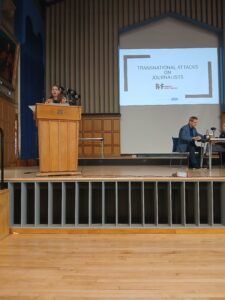
Fiona O’Brien, London Bureau Director of Reporters Without Borders, spoke about the rise of transnational threats and attacks on journalists by authoritarian governments. Over recent years, the issue of transnational repression has become an increasing concern, particularly so for journalists in authoritarian countries. Journalists face a number of threats, both physical and non-physical, in an attempt to silence them from their reporting and allow states to control narratives. Fiona also spoke about the personal impacts that threats against journalists, such as psychological trauma and self-censorship, can have on them. She also spoke about how some journalists have had to leave their homes due to safety concerns.
The final speaker in the panel, Howard Zhang (middle), Former Head of BBC News Chinese spoke about reporting on China and the practical realities and editorial decision-making. He spoke about the challenges that journalists reporting in China face, which include a lack of access to information, being unable to travel to certain locations and how journalists are penalised for reporting on certain topics, such as the early outbreak of COVID-19. He spoke about how government approval is required to report on numerous topics and how this can be difficult to attain.
